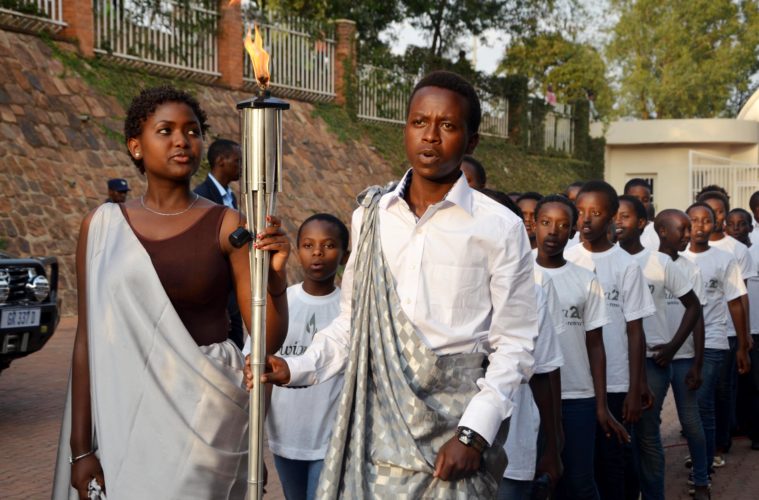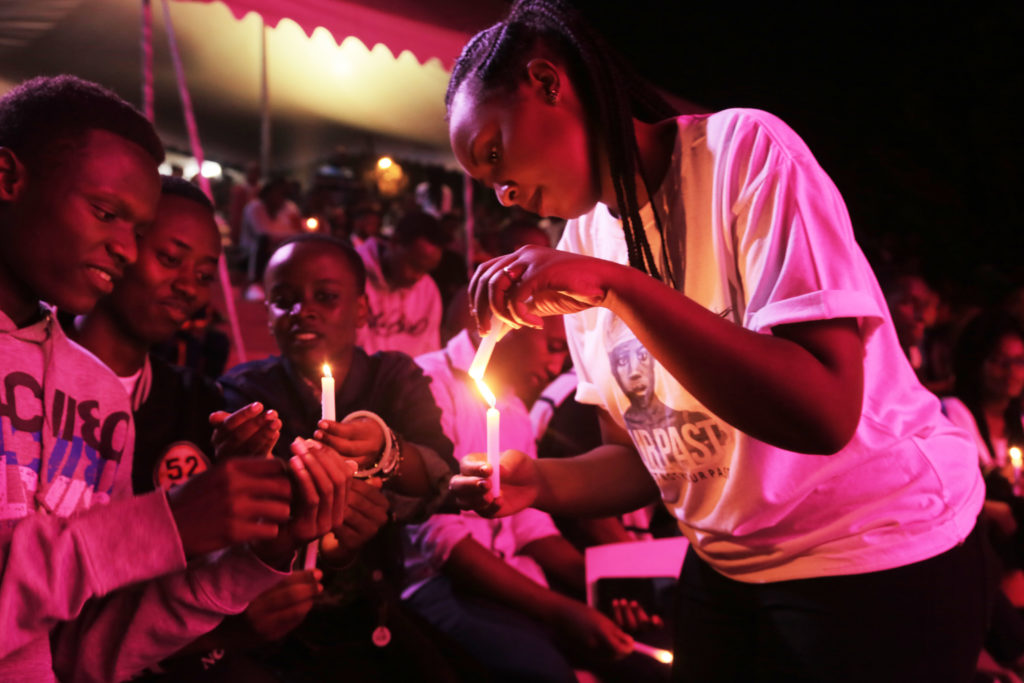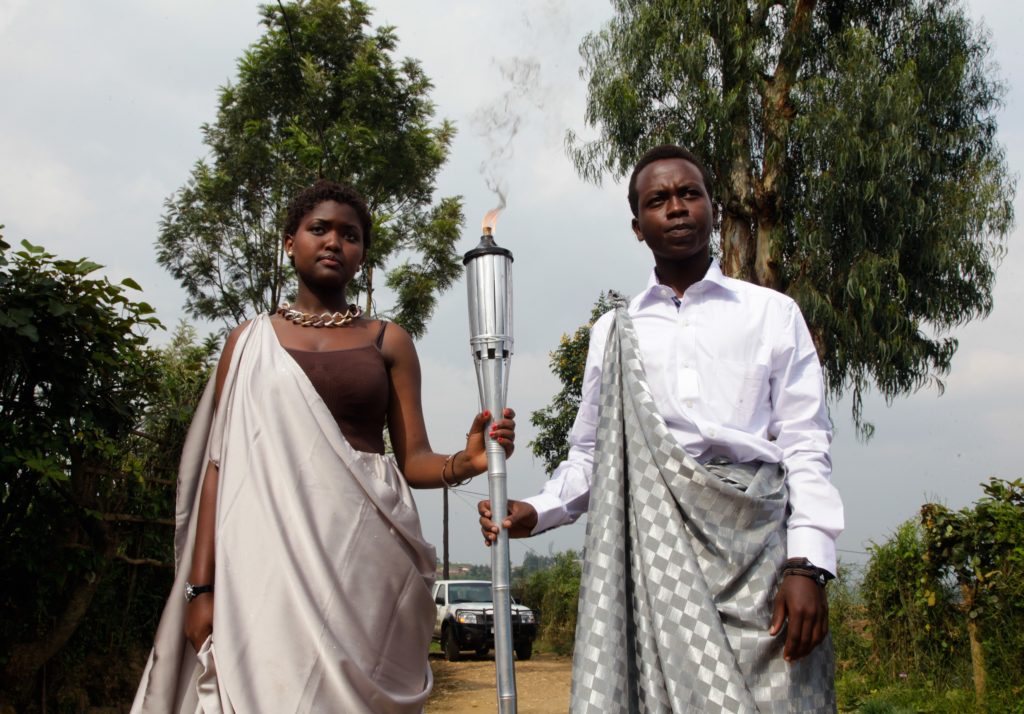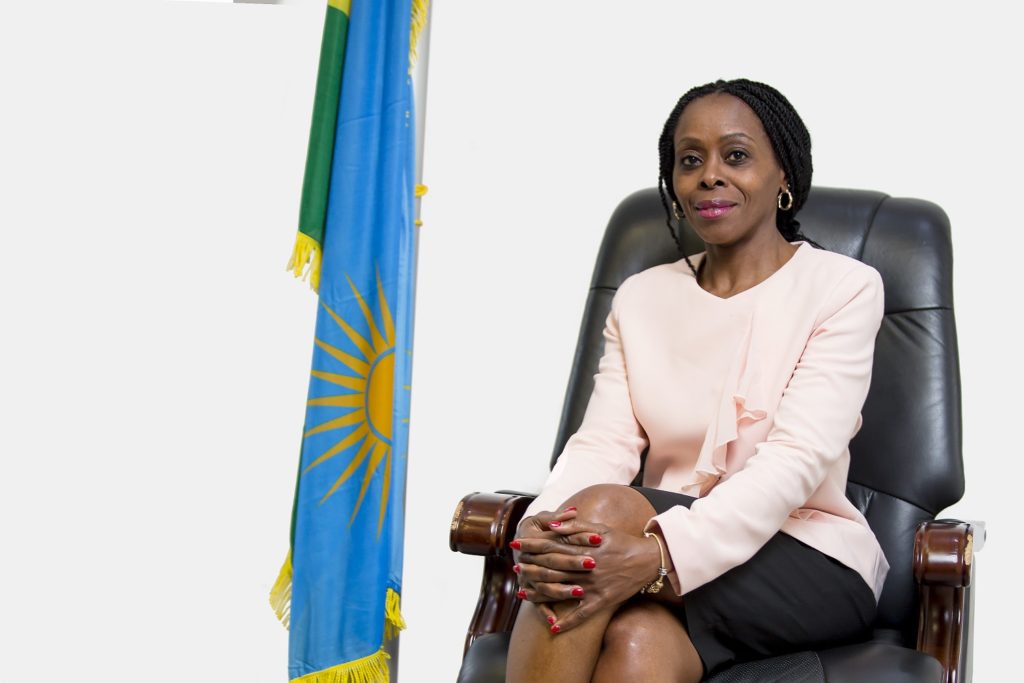A look at how trauma crosses generations and borders
A quarter century after the Genocide against the Tutsi, Christine Nkulikiyinka represents ‘the new Rwanda’ in her position as Rwanda’s current ambassador to the Nordic countries. After one of the worst crimes against humanity in the 20th century, the small East African nation has made an impressive transformational journey towards peace and economic development. This is also what local youth like 23-year-old Diane Manishimwe profit from today. But of course, the divisive events of 1994 still shape the ‘new Rwanda’. This article is an attempt to understand how national trauma manifests itself also in the lives of individuals that might seem, at first glance, disconnected from the genocide given they were abroad when it took place or were not yet born in 1994.
Christine Nkulikiyinka left Rwanda in 1985, when she went to attend university in Germany. While she was finishing her studies in Europe, her home country was abandoned by the international community and within 100 days, Hutu extremists killed over one million people in Rwanda. Nkulikiyinka has not experienced the Genocide against the Tutsi herself, “but the national trauma evolving from the events in 1994 connects all Rwandans, locally and abroad,” she says.
A genocide, as we have sadly experienced it in Rwanda, shapes everything.
In her position as ambassador to Germany from 2009 until 2015 and to Sweden since summer 2015, Nkulikiyinka needs to find a way of balancing the traumatic history and the ‘new Rwanda’ in her representation of the country and in her work with the diaspora. “A genocide, as we have sadly experienced it in Rwanda, shapes everything. It is such a deep cut in society that really nothing can be detached from it, also not diplomacy,” she says.
She explains, however, that this context often needs to be clarified again, for instance in meetings with representatives of the international community. “No matter how euphoric I talk about Rwanda today, sometimes I have to ask my partners ‘Do you know which country we are talking about, what happened there 25 years ago?’ because sometimes they simply don’t link it.”
People missing this link is also one of the major challenges for the Rwandan diaspora in their daily lives abroad, Nkulikiyinka observes.
Disconnected: Abroad, the collective character of trauma falls apart
In Rwanda, there is a common understanding of trauma and the country’s history. But abroad, many Rwandans do not even dare to tell their coworkers about their story as they are afraid of being misunderstood. Even more, some choose to not share their stories with their own children born abroad in fear of scaring them away from their home country. “Life in Europe is pretty lonely,” Nkulikiyinka tells from her own experience and from what she learned through her work with other Rwandans. “This loneliness doesn’t ease the process of working on ones’ trauma.” This means, the collective character of the national trauma that people share in Rwanda falls apart outside the country.
It is also for this reason that Nkulikiyinka and her colleagues have been organizing ‘Kwibuka’ events in Europe during the official commemoration period between April, 7th and July, 4th, the former being the day that marks the beginning of the genocide and the latter symbolifying Rwanda’s liberation through the Rwandan Patriotic Front (RPF). ‘Kwibuka’ means ‘to remember’ in Rwanda’s national language Kinyarwanda.
The collective character of the national trauma that people share in Rwanda falls apart outside the country.
Abroad, ‘Kwibuka’ events are not only important to commemorate the victims of the Genocide against the Tutsi, but also to create a collective support system for the traumatized members of the diaspora. And, Nkulikiyinka adds, these events are there to remind the international community of the atrocities that can happen when they look away. “We cannot forget and it is our duty to send this caution to the world.”
Sometimes, she has to defend the decision to keep on talking about the genocide. International colleagues for instance once asked if these events would not make it harder for Rwandans to forget and instead enhance the trauma. Indeed, Nkulikiyinka testifies that she now suffers from a secondary trauma due to listening to so many stories of survivors who have been in Rwanda in 1994. “But we decide to work with this trauma, with our history. Not to forget it. We cannot and we shall not forget.”
Connected: Trauma passed on to the next generation
This mindset of not forgetting also applies to the almost 60 percent of today’s Rwandans who were actually born after 1994. Diane Manishimwe, born in 1996, is a member of the first post-genocide generation. She is a third-year Finance student at University of Kigali in Rwanda’s capital. Besides this, she manages her own business producing and selling handicrafts. “I want to build my own bright future,” the young entrepreneur says, showing pictures of colorful pom pom earrings and home decoration articles she made. Through this, Manishimwe hopes to promote the Rwandan culture as well. “I want to contribute to ‘Made in Rwanda’ so others get to know Rwanda’s traditions and our strength,” she explains.
Indeed, the label ‘Made in Rwanda’ experienced a boost over the last couple of years, with Rwanda promoting its own fashion designers, engineers and creative workers. ‘Made in Rwanda’ today stands for the ‘New Rwanda.’ But as much as Manishimwe puts emphasis on this goal of her life, she also insists on not forgetting the recent history of Rwanda that is not at all as colorful as her art. “I was born after the Genocide against the Tutsi and have always lived in a peaceful country. But it is important to know our history to avoid recurring conflict,” she says. As a student, she has participated in many commemoration events at school and university, including, the yearly ‘Walk to Remember’ during which mainly youth cross the city on foot to commemorate the victims and symbolically walk towards a better future, amongst others. Also, with her parents, both survivors of the genocide, Manishimwe talks about her family’s and friends’ history.
This, however, has caused nightmares to the 23-year-old. “I’m often sad and can’t sleep well.” Debby Karemera, team leader of the peacebuilding program at Never Again Rwanda (NAR), explains that this is a common phenomenon amongst Rwandan youth. NAR is a non-profit organization founded in 2002 which works to promote peace, development and social justice and has been working intensively with youth tackling intergenerational trauma. “Children and youth can get traumatized from being surrounded by parents or caregivers who experienced trauma.” Furthermore, “trauma can be passed from one generation to another.” This is called intergenerational trauma and the inherited trauma experience can be as intense as primary trauma experiences. Manishimwe learned about her family’s past at a very young age and even though she has not lost her parents and all of her six siblings have survived the genocide, she sometimes cannot handle the pain coming from these shared experiences. Karemera explains that the process of learning about your devastating history without any psychological support can lead to or intensify trauma also in youth who themselves have not lived through the Genocide against the Tutsi.
Especially triggering are ‘Kwibuka’ events that take place all over Rwanda during the commemoration period. “Trauma is triggered by a particular wounding event or situation and in this case, the heaviness and emotions during the commemoration period could lead to recurring trauma,” Karemera explains. Still, the commemoration period is also important from a psychological perspective. “It is important to keep the memories of those we lost since it’s an important aspect of the grieving and healing process,” Karemera, who has a background in counseling psychology, elaborates.
At the end of September 2019, another mass grave from the genocide was discovered in Rwanda’s Southern Province. While such discoveries, even 25 years after the genocide, can give closure to some survivors who have been yearning to give their loved ones a decent burial, they also bring alive the memories and make youth actively live through the events of 1994 through extensive exposure.
Transformation: traumatic experiences turned into the ‘New Rwanda’
It becomes clear that “healing is still relevant in today’s post-genocide Rwanda,” as Karemera concludes. Yet, amongst Rwandans within the country and in the diaspora, this healing process is mostly defined by moving forward and building the ‘New Rwanda’.
To encourage this, NAR focuses on working with the youth to empower them with critical thinking skills in order for them to make informed decisions and resist manipulation.
Manishimwe hopes on soon getting enough capital to open her own shop in Kigali and one day have a family. Then “we will teach my children about our history, of course, but also show them what ‘Made in Rwanda’ means today.”
While Nkulikiyinka continues representing her country abroad, sensitizing about what happened a quarter century ago in her home country, she always concludes her presentations saying: “There is a new Rwanda now. And yes, the genocide is part of our history and we, who are affected by it, have to deal with its consequences every day. But it shall not define us.”




